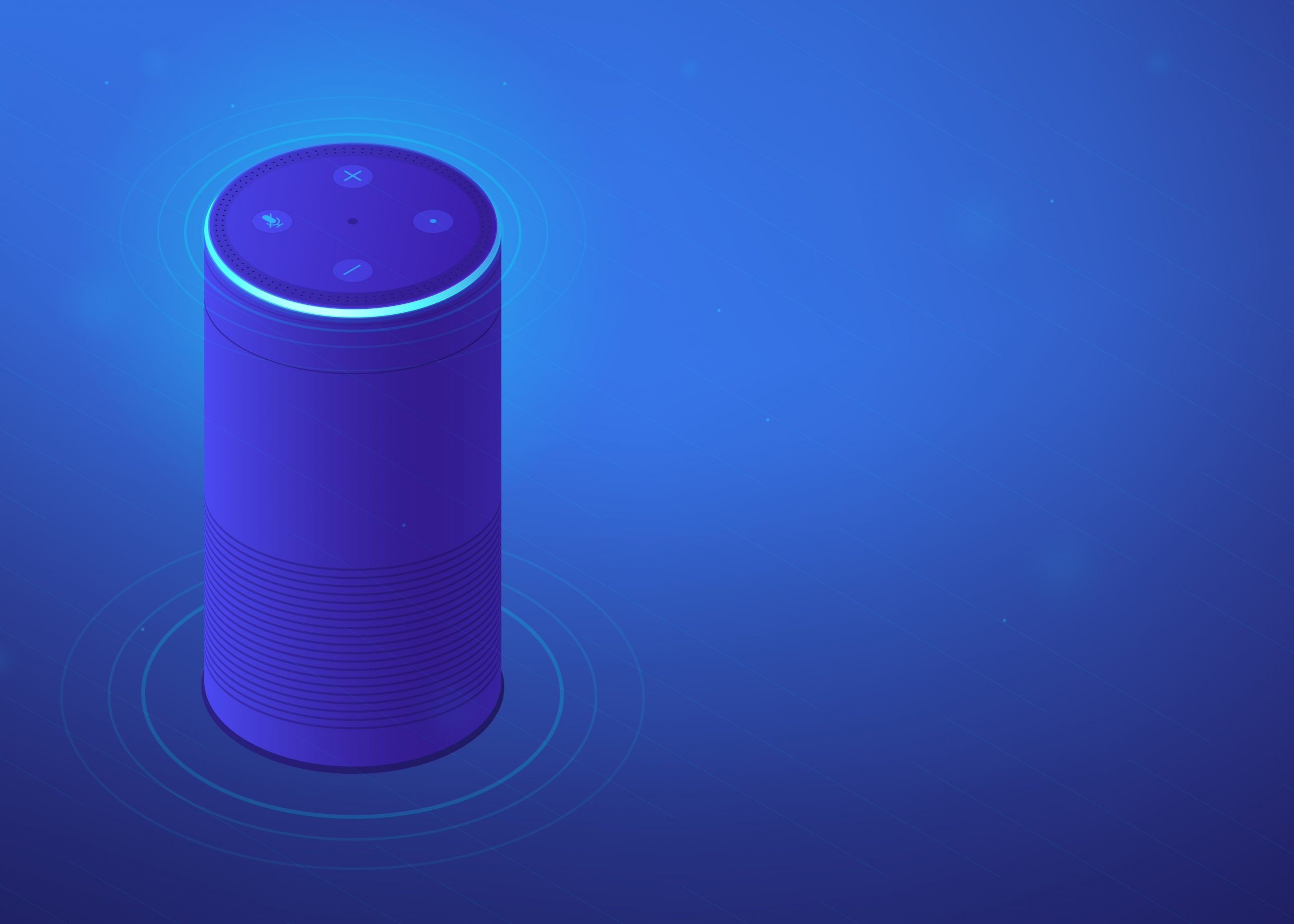The growing role of voice assistants in health care
Judging by the number of commercials advertising “smart speakers,” voice technology is going to be big this holiday season. In 2017, almost 44 million voice assistants were sold, and these devices are penetrating the U.S. market even faster than smartphones. Retailers are banking on consumers wanting to ask Siri, Alexa, or Google Assistant, “What’s the weather like today?”
But what about doctors? If you’ve wondered how voice technology could be applied in health care, you’ll want to read on to find out what’s possible, what’s legal, and what’s practical.
Not yet HIPAA compliant
First and foremost, it’s important to know that Amazon Alexa and other voice assistants are not HIPAA compliant—yet. That may soon change, according to HIPAA Journal. “Alexa certainly has considerable potential in health care,” the publication noted. For instance, doctors could use Alexa to transcribe medical notes, and the technology could easily be used to remotely monitor patients and help to engage patients more in their own health care.
Voice assistants are currently not secure enough to trust with patients’ protected health information, a prime target for hackers.
However, voice technology currently is not secure enough to trust with patients’ protected health information (PHI). Ordering a prescription via voice assistant would be a HIPAA violation because a doctor would need to provide a patient’s personal information such as name, medication, and home address. With PHI being a top target for hackers, that’s a risk doctors can’t afford to take.
“While Google and Amazon have worked on making their cloud services compliant with HIPAA’s standards, neither smart speaker with their respective virtual assistant is HIPAA compliant at this time,” Medical Economics reported in June, adding, “Failure on the part of the physician to secure medical record data can not only cost them hundreds of thousands of dollars, but also enable thieves with the opportunity to commit identity theft.”
[bctt tweet=”“While Google and Amazon have worked on making their cloud services compliant with HIPAA’s standards, neither smart speaker with their respective virtual assistant is HIPAA compliant at this time,” Medical Economics reported.” username=”goRendia”]
Noted HIPAA Journal, “Amazon is certainly moving toward making Alexa HIPAA-compliant, but until [then] Alexa cannot be used in a health care setting with any identifiable health information.” Stay tuned.
Trust and accuracy issues
Besides legal issues, there are also concerns about accuracy and trust when using voice technology. You can imagine the implications of a voice assistant misunderstanding the name of a drug. (“Sorry. Was that Lodoxamide Tromethamine?”) But inaccurate search results are a problem, too.
Studies show that one in three consumers have found inaccurate information from voice searches, 70 percent have not acted on search results, and only 2 percent have completed a purchase using voice.
A recent study on the accuracy of voice search found that 70 percent of consumers surveyed have yet to act on voice search results, and more than one in three consumers have found inaccurate or conflicting information about a business’ opening hours displayed online, according to Forbes. People may be asking Siri for directions to your office, but are they acting on them?
The article also reported that voice technology has not yet convinced consumers to take specific actions like buying products, claiming that only 2 percent of Alexa users have completed a purchase, and 90 percent of voice users have never tried. (Note: Amazon debated these findings but didn’t offer alternative numbers.)
Practical applications for patients and doctors
There are many ways voice technology is already proving useful, however. This is especially true for people with vision loss. Smart speakers help those who are blind or have limited vision to search the internet, make phone calls, and listen to audiobooks without the need for a computer or smartphone, after the initial setup. Patients can also use voice assistants to remind them to take their medications or schedule doctor appointments.
For more on this topic, watch our video, Empower Patients Who Are Losing Their Vision
Voice technology is already helping people with vision loss, as well as doctors dictating for their own purposes.
Statistics show that voice technology is already being widely adopted by doctors, if only for their own personal use. At the Pharma Customer Experience Summit 2018, Murray Izenwasser, AAJ Technologies’ CMO and Vice President, Strategy & Digital Solutions, presented on how health care providers are leveraging smart speakers and voice technologies:
- 78% Use voice on phone
- 48% Dictate on their phone or tablet
- 31% Use digital voice devices
- 29% Use voice in Electronic Health Records (EHR)
[bctt tweet=”Statistics show that voice technology is already being widely adopted by doctors, if only for their own personal use.” username=”goRendia”]
What’s on the horizon
New voice assistants that leverage artificial intelligence (AI) and natural language processing algorithms are already being tested in hospitals, reported Wired. Earlier this year, Sopris Health launched an app that automatically converts doctors’ speech into an actionable note in a patient’s EHR. So, for instance, “I think I’d like to see you again if things aren’t feeling better within a few days,” becomes “Schedule three-day follow-up.”
New voice assistants that leverage artificial intelligence show promise for integrating with EHRs and reducing doctors’ paperwork.
Because using the app requires doctors to assume responsibility (and liability) for accuracy of information, it’s actually “changing physician behavior in a good way,” said Sopris CEO and co-founder Patrick Leonard. “The app forces them to practice active listening, double-checking with patients that they got everything right.” And if the voice assistant gets anything wrong, doctors can manually overwrite it.
Another company, Suki, also launched its AI-powered digital voice assistant this year. Designed by engineers from Apple and Google, Suki is conducting numerous pilot programs in internal medicine, ophthalmology, orthopedics, and plastic surgery practices in California and Georgia, reported Wired. “Preliminary results from the company show Suki cuts physician paperwork by 60 percent.”
As the use of voice assistants grows, new tools are developed, and HIPAA obstacles are overcome, doctors will be able to harness this technology to provide better experiences and outcomes for their patients. Are you an early adopter of new tools and technologies for your practice, or will you wait and see how others implement them first?


